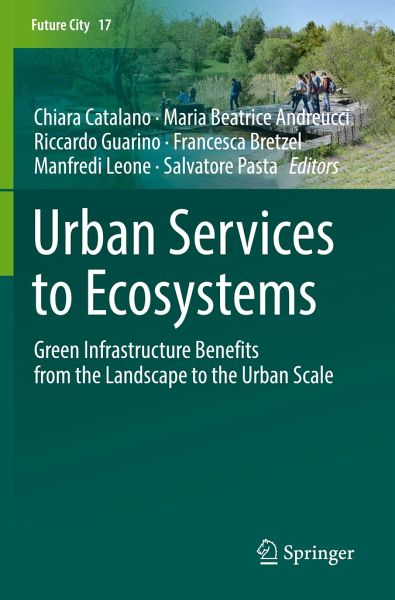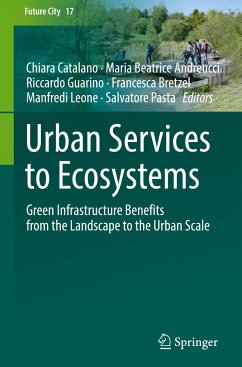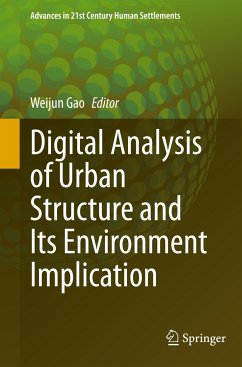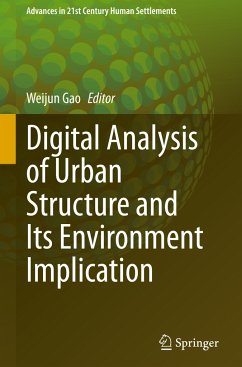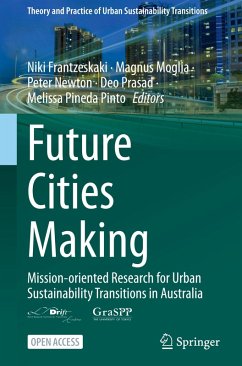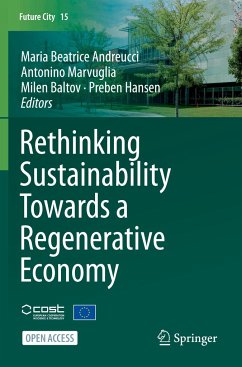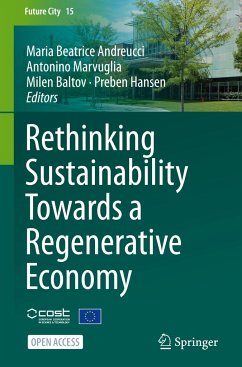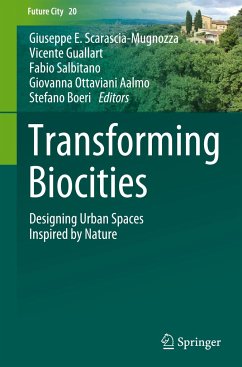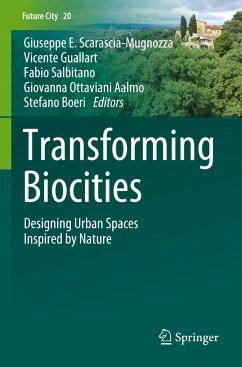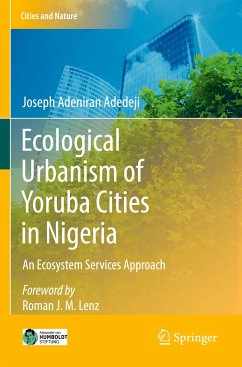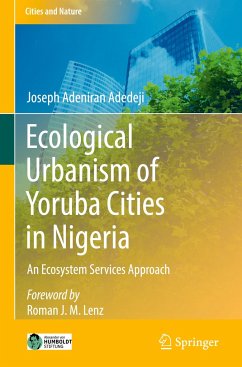Chiara Catalano, PhD in Technologies for Sustainability and Land Restoration at the University of Palermo (2017) and MSc in Architecture (2008) at the University of Catania. Her eager to travel and to learn different viewpoints took her to live also in London, Zurich, Hannover and ¿eské Bud¿jovice where she could alternate professional work, further education, and research activities. From 2017, she got a permanent position as a Researcher at Zurich University of Applied Sciences within the Urban Ecology research group, and currently within the Green Spaces Development. She is engaged in teaching in several BSc modules related to Urban Ecology and Ecosystems Design (in German and English), in supervising both BSc and MSc thesis on these topics, but also in the research and innovation area. Currently, she is leading an international project (DeMo: Design and Modelling of Urban Ecosystems, Switzerland-France), aiming at developing a semi-automatic spatial-based approach to integrate habitats in constructed ecosystems and buildings. Her primary passion as well as the topic of her PhD thesis were near-natural and biodiverse green roof design, construction and monitoring, interests well documented in international peer-review articles and conferences. She landed on the ground of urban green infrastructure inspired by the capability of plants to build dynamic communities able to characterize and reveal specific environmental conditions: plants cannot move, but they give lessons of perfection and slow adaptation, plants cannot speak, but we can observe and study them to plan greener, sustainable and liveable cities. Maria Beatrice Andreucci, Ph.D. in Environmental Design (Sapienza University of Rome), M.B.A. (INSEAD). She is a registered architect and an economist and focuses her professional activity, research and teaching on the application of environmental technological design and environmental economics theories, principles and methods on urban design, architecture, and landscape architecture projects. Management Committee member of the COST Action "PESFOR-W Payments for Ecosystem Services Forests for Water". Core group member of the COST Action "Circular City Implementing Nature-based Solutions for creating a resourceful Circular City". Co-chair of the European research project "EKLIPSE - Urban Biodiversity & Mental Health and Well-being", in cooperation with the French Ministry of the Environment and the World Health Organization. Chair of IFLA "International Federation of Landscape Architects Advisory Circle". Member of SITdA "Italian Society of Technology of Architecture", and EDRA "Environmental Design Research Association". In the last decade, she has authored two books, co-edited three books and published more than sixty papers in peer-reviewed journals and conferences. Her design projects have been published in international journals, and have won recognitions and prizes at international levels. Currently, she works as Research Professor of "Environmental Technological Design", member of the Academic Board of the Ph.D. Program in "Planning, Design, Technology of Architecture"; and expert member of the Scientific Didactic Committee of the II level Master in "Environmental Technological Design", at "Sapienza" University of Rome. Riccardo Guarino is the victim of an insane passion for plants, which led him to devote his restless youth to the floristic exploration of the southern Alpine and Prealpine Region. From the highest peaks, he slipped downstream and, after years as a castaway in the stormy Sea of Precariousness, he landed at the University of Palermo (Sicily), as a lecturer in Applied and Environmental Botany. His research interests include vegetation ecology, vegetation classification, biogeography, floristics, multifunctional agriculture and conservation biology. About these topics, he authored or co-authored more than 150 peer-reviewed contributions, 8 monographs, 11 book chapters. His interest in green infrastructures is driven by the desire to offer plants as much space as possible. Plants have an essential smartness, a simplicity lived with serene grace. Silently passing their time on the earth, they glamorize without clamour, they give without demanding. He who loves plants can see how gross it is to hoard without limits; how illusory it is to claim pre-emption over what, in reality, belongs to everyone; how vain it is to spend time just to satisfy needless needs, believing that this is the right way to escape from a status that looks like "poverty" to our blinded eyes. He who really loves plants realizes that we are getting poorer and poorer while we continue this vast and violent exploitation of our planet. Francesca Bretzel was born in Milan and now lives in Pisa, where she carried out her superior studies obtaining a degree in Agricultural Sciences with a dissertation on Floriculture. Francesca has achieved a MSc in Landscape and Historic Gardens at Versailles, France. Afterwards, she started her working career at the Institute of soil Chemistry of the National Research Council in Pisa, now Institute of Research on Terrestrial Ecosystems. Her research interest begun with the dynamics of the soil of urban, degraded and anthropized areas, then widen to the spontaneous and planted vegetation of those areas. Recent projects are focused on the circular economy and the recycle of paper sludges to produce a suitable substrate for plantings and green roofs. Manfredi Leone, PhD in Sustainable Urban Development at the University of Roma Tre (2001) and MSc in Architecture at the University of Palermo (1996). Registered Architect, founding member of the Italian academic society of Landscape Architecture (I-Asla), and currently a member of the Association of Italian Landscapers (AIAPP). He got a permanent position as Professor of Landscape Architecture at the Department of Architecture of the University ofPalermo since 2004. He teaches Landscape Architecture and is also a teacher of Historical Gardens and Architectural Design in MSc and BSc courses at the University of Palermo. He has been teaching as visiting professor at QUT University in Australia, offering lectures nationwide and internationally in Universities in China, Iran, Argentina, Cuba, Spain, Czech Republic and France. Currently, he is involved in two international projects funded by the Erasmus program within the European Network of Universities and Education Institutions: SumCuLa focused on Cultural Landscapes Sustainable Management, and NAWA, about Design thinking as a tool for business and design development. He runs research on public spaces of contemporary cities, low-cost landscapes, the recovery of cultural landscapes, the role of urban communities in bottom-up strategies, the landscape in infrastructures and sustainable mobility. He is the author of books and articles published in peer-reviewed journals and conferences, leading and teaching in several workshops worldwide about Landscape and Resiliency. He is the author of low-cost urban landscape projects including Parco Uditore, Giardino Pop-Up / Salita Raffadali, Maredolce Master Plan, all based in Palermo. Salvatore Pasta, PhD in Plant Biosystematics and Ecology (University of Florence, 1994-1997). Since 2018 he works as a researcher at the Unit of Palermo (Sicily, Italy) of the Institute of Biosciences and BioResources (IBBR) - National Research Council (CNR). His main fields of interest are floristics, plant conservation, forest ecology, biological invasions, vegetation dynamics, sustainable agroforestry, island biogeography, landscape history and ethnobotany. Quite recently, he started to pay increasing attention to urban ecology and to the floristic composition, structure and role of urban plant communities. He is the author or co-author of more than 180 peer-reviewed contributions, 5 monographs and more than 50 book chapters concerning the above-mentioned topics. He is vice-chair of the Mediterranean Plants Specialist Group (MPSG) of the International Union for the Conservation of Nature (IUCN) and has been collaborating with several universities in Italy (e.g., Palermo, Catania and Florence) and Switzerland (e.g., Bern, Fribourg and ZHAW in Wädenswil). As a freelance botanist, he has carried out many vegetation and floristic surveys, censuses and assessments and participated in the writing of the management plans of many protected areas and special conservation areas of European community interest and took part in numerous projects focused on plant species conservation in several Mediterranean countries (mostly Sicily, but also Sardinia, Crete and Tunisia) as well as in NW-Germany.
